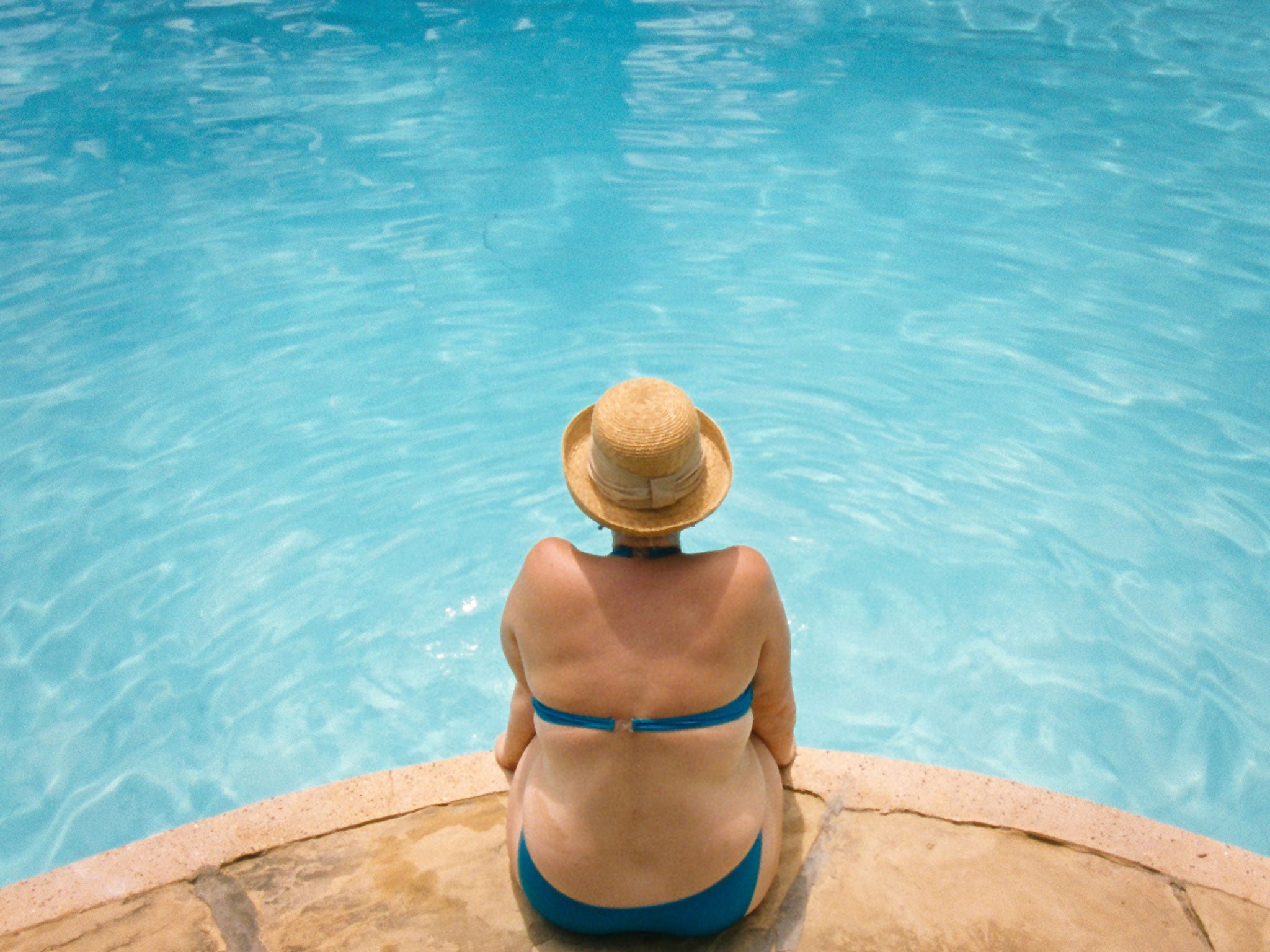Film review: Paradise: Love - If you want sex on the beach, prepare for the gritty truth

You might well think that Austrian director Ulrich Seidl takes a dim view of human nature. His Dog Days (2001) depicted the Vienna suburbs as hell on earth, while Import/Export (2007) set dim-witted Austrian thugs loose in a decayed Eastern Europe, while a Ukrainian nurse tried to survive in a horrifically inhospitable West. Yet you can detect a wry tenderness in his new trilogy Paradise, although you have to reach the final episode, Hope, for it to blossom into something like fondness for humanity. In the opening chapter Love, Seidl seems to give us human nature at its worst.
The trilogy concerns three female characters' very different pursuits of earthly heaven. Faith (released 5 July) is the grimmest comedy of the three, about a Christian fanatic practising self-scourging in her suburban house. In Hope (2 August), obese 13-year-old Melanie visits a fat farm and starts a hair-raisingly ill-advised flirtation with a world-weary medic. All three films, typically of Seidl, contain situations so excruciating that you can barely look. Yet by the end of Hope, largely because of its unsinkable teenage heroine, you may actually feel uplifted, persuaded that humanity isn't necessarily a total write-off.
By contrast, the opening chapter, Love, is the most pitiless, its sombre proposition offset by radiant visuals. The setting is Kenya, where middle-aged Teresa (Margarethe Tiesel), Melanie's mother, has gone alone for a beach holiday. The golden sands and deep blue skies look heavenly indeed, but what really tickles Teresa is the prospect of sex – and maybe some affection – with young African men, the local "beach boys" keen to strike a deal with a generous "sugar mama".
Painfully lacking confidence in her body, the portly Teresa hooks up with soft-spoken, attentive Munga (Peter Kazungu). They start the tender affair she has been craving, but soon he's asking for money – which is simply the accepted mode of transactions between beach boys and sugar mamas. Who's exploiting whom? It cuts both ways: that, Love says, is the hard fact of Euro-African trade.
Where Laurent Cantet's 2005 film Heading South offered a thoughtful investigation of Western women's sex tourism, Seidl is confrontational. Teresa's unsentimental education culminates in a mind-boggling birthday party, in which she and her friends unambiguously use an African male stripper as a sex toy. It's a disturbing scene and bitterly comic, too.
Of course, you can't help wondering whether Seidl is himself exploiting his cast. The African men, beach boys in real life, are made into objects as much by the film as by the white women, while the European actresses are not always left a great deal of dignity. Nevertheless, Teresa projects a deep humanity; Margarete Tiesel gives an extraordinary performance, letting down her defences to pinpoint an acute middle-aged anxiety about the need for love in the face of physical decline.
The film's formal brilliance makes its comic grimness palatable and even more acerbic: tourists drilled into regimented "fun", or the static tableaux, a Seidl trademark, of beach boys on the sand. The photography (Wolfgang Thaler, Ed Lachman) is luminous, bedroom walls glowing on balmy afternoons. This world looks like heaven – if you ignore the economic truth of it. Love is eye-opening stuff from one of Europe's most daring directors. It's perhaps too repetitive to be the best of the three, but the trilogy overall is dazzling: cinematic paradise for connoisseurs of human purgatory.
Subscribe to Independent Premium to bookmark this article
Want to bookmark your favourite articles and stories to read or reference later? Start your Independent Premium subscription today.

Join our commenting forum
Join thought-provoking conversations, follow other Independent readers and see their replies